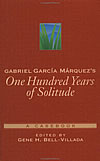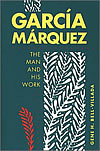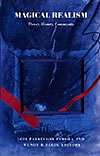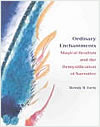Books About One Hundred Years of Solitude

Looking for insight into this deep, passionate and complex novel? Many books have been written about the novel, its author, magical realism and more. Here are some of our favorites. Pick them up at your local library, bookstore or online today!
Gabriel García Márquez's 100 Years of Solitude: A CasebookBy Gene H. Bell-Villada
Gabriel García Márquez's One Hundred Years of Solitude is arguably the most important novel in twentieth-century Latin American literature. This casebook features ten critical articles on García Márquez's great work. Carefully selected from the most important work on the novel over the past three decades, they include pieces (by scholars?) by Carlos Fuentes, Iris Zavala, James Higgins, Jean Franco, Michael Wood, and Gene H. Bell-Villada. Among the intriguing aspects of the work discussed are its mythic dimension, its "magical" side, its representations of women, its relationship with past chronicles of exploration and discovery, its portrayals of Western power and imperialism, its astounding diffusion throughout the globe and the media, its simple truth-telling, and its fidelity to the tangled history of Latin America. The book incorporates several theoretical approaches—historical, feminist, postcolonial. It also includes the first English translation of Fuentes's renowned, oft-cited, eight page meditation on the work; a general introduction; and a 1982 interview with García Márquez.
Learn more about Gabriel García Márquez's 100 Years of Solitude: A Casebook from Oxford University Press

García Márquez: The Man and His Work
By Gene H. Bell-Villada
Gabriel García Márquez is one of the most influential Latin American writers of the twentieth century. His unique literary creativity is rooted in the history of the region, with all its social and political implications.
In this beautifully written examination of García Márquez and his work, Gene Bell-Villada traces the major forces that have shaped the Colombian novelist and describes his life, his personality, and his political opinions. He considers García Márquez's place in world literature and analyzes his short fiction and all of his novels from the great and complex One Hundred Years of Solitude—a cultural phenomenon the likes of which we have seldom seen—through Love in the Time of Cholera. He shows why García Márquez has achieved a confluence of high art and popular success that is virtually unique in the twentieth century.
Bell-Villada examines the narrative works of García Márquez for their historical and human content, for their literary technique and structure, and for their expert use of fantasy, ribaldry, humor, and satire. He describes García Márquez as a global phenomenon and as a local boy, as a Nobel Laureate and as a "Latin American Everyman", as a political writer and as a novelist of love. The book will appeal to a broad spectrum of readers—generalists who enjoy his novels, teachers and students, and literary specialists and Latin Americanists investigating the culture and politics of the region.
Learn more about García Márquez: The Man and His Workfrom The University of North Carolina Press.
By Gene H. Bell-Villada
Gabriel García Márquez is one of the most influential Latin American writers of the twentieth century. His unique literary creativity is rooted in the history of the region, with all its social and political implications.
In this beautifully written examination of García Márquez and his work, Gene Bell-Villada traces the major forces that have shaped the Colombian novelist and describes his life, his personality, and his political opinions. He considers García Márquez's place in world literature and analyzes his short fiction and all of his novels from the great and complex One Hundred Years of Solitude—a cultural phenomenon the likes of which we have seldom seen—through Love in the Time of Cholera. He shows why García Márquez has achieved a confluence of high art and popular success that is virtually unique in the twentieth century.
Bell-Villada examines the narrative works of García Márquez for their historical and human content, for their literary technique and structure, and for their expert use of fantasy, ribaldry, humor, and satire. He describes García Márquez as a global phenomenon and as a local boy, as a Nobel Laureate and as a "Latin American Everyman", as a political writer and as a novelist of love. The book will appeal to a broad spectrum of readers—generalists who enjoy his novels, teachers and students, and literary specialists and Latin Americanists investigating the culture and politics of the region.
Learn more about García Márquez: The Man and His Workfrom The University of North Carolina Press.

Magical Realism: Theory, History, Community
Edited by Lois Parkinson Zamora and Wendy B. Faris
Magical realism is often regarded as a regional trend, restricted to the Latin American writers who popularized it as a literary form. In this critical anthology, the first of its kind, editors Lois Parkinson Zamora and Wendy B. Faris show magical realism to be an international movement with a wide-ranging history and a significant influence among the literatures of the world. In essays on texts by writers as diverse as Toni Morrison, Gunter Grass, Salman Rushdie, Derek Walcott, Abe Kobo, Gabriel García Márquez, and many others, magical realism is examined as a worldwide phenomenon.
Presenting the first English translation of Franz Roh's 1925 essay in which the term magical realism was coined, as well as Alejo Carpentier's classic 1949 essay that introduced the concept of lo real maravilloso(magical realism) to the Americas, this anthology begins by tracing the foundations of magical realism from its origins in the art world to its current literary contexts. It offers a broad range of critical perspectives and theoretical approaches to this movement, as well as intensive analyses of various cultural traditions and individual texts from Eastern Europe, Asia, North America, Africa, the Caribbean, and Australia, in addition to those from Latin America. In situating magical realism within the expanse of literary and cultural history, this collection describes a mode of writing that has been a catalyst in the development of new regional literatures and a revitalizing force for more established narrative traditions—writing particularly alive in postcolonial contexts and a major component of postmodernist fiction.
Lois Parkinson Zamora is Professor of English and Comparative Literature at the University of Houston. Wendy B. Faris is Professor of English and Comparative Literature at the University of Texas, Arlington.
Learn more about Magical Realism: Theory, History, Community from Duke University Press.
Edited by Lois Parkinson Zamora and Wendy B. Faris
Magical realism is often regarded as a regional trend, restricted to the Latin American writers who popularized it as a literary form. In this critical anthology, the first of its kind, editors Lois Parkinson Zamora and Wendy B. Faris show magical realism to be an international movement with a wide-ranging history and a significant influence among the literatures of the world. In essays on texts by writers as diverse as Toni Morrison, Gunter Grass, Salman Rushdie, Derek Walcott, Abe Kobo, Gabriel García Márquez, and many others, magical realism is examined as a worldwide phenomenon.
Presenting the first English translation of Franz Roh's 1925 essay in which the term magical realism was coined, as well as Alejo Carpentier's classic 1949 essay that introduced the concept of lo real maravilloso(magical realism) to the Americas, this anthology begins by tracing the foundations of magical realism from its origins in the art world to its current literary contexts. It offers a broad range of critical perspectives and theoretical approaches to this movement, as well as intensive analyses of various cultural traditions and individual texts from Eastern Europe, Asia, North America, Africa, the Caribbean, and Australia, in addition to those from Latin America. In situating magical realism within the expanse of literary and cultural history, this collection describes a mode of writing that has been a catalyst in the development of new regional literatures and a revitalizing force for more established narrative traditions—writing particularly alive in postcolonial contexts and a major component of postmodernist fiction.
Lois Parkinson Zamora is Professor of English and Comparative Literature at the University of Houston. Wendy B. Faris is Professor of English and Comparative Literature at the University of Texas, Arlington.
Learn more about Magical Realism: Theory, History, Community from Duke University Press.

Ordinary Enchantments: Magical Realism and the Remystification of Narrative
By Wendy B. Faris
Ordinary Enchantments investigates magical realism as the most important trend in contemporary international fiction, defines its characteristics and narrative techniques, and proposes a new theory to explain its significance. In the most comprehensive critical treatment of this literary mode to date, Wendy B. Faris discusses a rich array of examples from magical realist novels around the world, including the work not only of Latin American writers like Gabriel Garcia Marquez, but also of authors like Salman Rushdie, Gunter Grass, Toni Morrison, and Ben Okri.
Faris argues that by combining realistic representation with fantastic elements so that the marvelous seems to grow organically out of the ordinary, magical realism destabilizes the dominant form of realism based on empirical definitions of reality, gives it visionary power, and thus constitutes what might be called a "remystification" of narrative in the West. Noting the radical narrative heterogeneity of magical realism, the author compares its cultural role to that of traditional shamanic performance, which joins the worlds of daily life and that of the spirits. Because of that capacity to bridge different worlds, magical realism has served as an effective decolonizing agent, providing the ground for marginal voices, submerged traditions, and emergent literatures to develop and create masterpieces. At the same time, this process is not limited to postcolonial situations but constitutes a global trend that replenishes realism from within.
Wendy B. Faris is professor of English and comparative literature at the University of Texas at Arlington. She is the author of Carlos Fuentes and Labyrinths of Language: Symbolic Landscape and Narrative Design in Modern Fiction, as well as co-editor of Magical Realism: Theory, History, Community.
Learn more about Ordinary Enchantments: Magical Realism and the Remystification of Narrative from Vanderbilt University Press.
By Wendy B. Faris
Ordinary Enchantments investigates magical realism as the most important trend in contemporary international fiction, defines its characteristics and narrative techniques, and proposes a new theory to explain its significance. In the most comprehensive critical treatment of this literary mode to date, Wendy B. Faris discusses a rich array of examples from magical realist novels around the world, including the work not only of Latin American writers like Gabriel Garcia Marquez, but also of authors like Salman Rushdie, Gunter Grass, Toni Morrison, and Ben Okri.
Faris argues that by combining realistic representation with fantastic elements so that the marvelous seems to grow organically out of the ordinary, magical realism destabilizes the dominant form of realism based on empirical definitions of reality, gives it visionary power, and thus constitutes what might be called a "remystification" of narrative in the West. Noting the radical narrative heterogeneity of magical realism, the author compares its cultural role to that of traditional shamanic performance, which joins the worlds of daily life and that of the spirits. Because of that capacity to bridge different worlds, magical realism has served as an effective decolonizing agent, providing the ground for marginal voices, submerged traditions, and emergent literatures to develop and create masterpieces. At the same time, this process is not limited to postcolonial situations but constitutes a global trend that replenishes realism from within.
Wendy B. Faris is professor of English and comparative literature at the University of Texas at Arlington. She is the author of Carlos Fuentes and Labyrinths of Language: Symbolic Landscape and Narrative Design in Modern Fiction, as well as co-editor of Magical Realism: Theory, History, Community.
Learn more about Ordinary Enchantments: Magical Realism and the Remystification of Narrative from Vanderbilt University Press.



